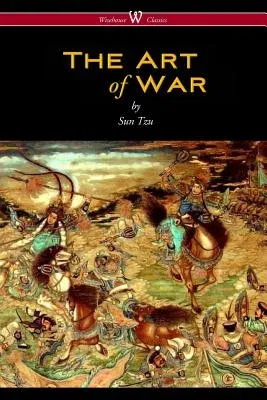THE ART OF WAR (Chinese: 孫子兵法; pinyin: Sūnzĭ bīngfǎ) is an ancient
Chinese military treatise attributed to Sun Tzu, a high-ranking military
general, strategist and tactician, and kindred to the Realpolitik of his
time, termed in China as Legalism. The text is composed of 13 chapters,
each of which is devoted to one aspect of warfare. It is commonly
thought of as a definitive work on military strategy and tactics. It has
been the most famous and influential of China's Seven Military Classics,
and "for the last two thousand years it remained the most important
military treatise in Asia, where even the common people knew it by
name." It has had an influence on Eastern and Western military thinking,
business tactics, legal strategy and beyond.
Beyond its military and intelligence applications from earliest days to
the present time, THE ART OF WAR has been applied to many fields well
outside of the military. Much of the text is about how to fight wars
without actually having to do battle: it gives tips on how to outsmart
one's opponent so that physical battle is not necessary. As such, it has
found application as a training guide for many competitive endeavors
that do not involve actual combat. There are business books applying its
lessons to office politics and corporate strategy. Many companies make
the book required reading for their key executives. The book is also
popular among Western business management, who have turned to it for
inspiration and advice on how to succeed in competitive business
situations. It has also been applied to the field of education. The Art
of War has been the subject of law books and legal articles on the trial
process, including negotiation tactics and trial strategy.(more on
www.wisehouse-classics.com)


